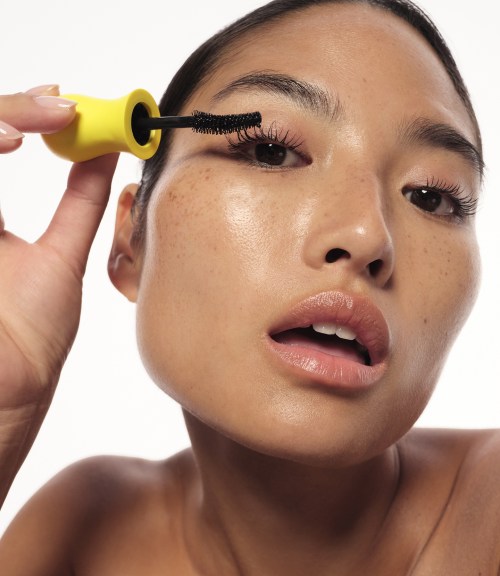When shopping for skin-care products and makeup, it’s easy to browse the collections at a local department store or drugstore, both of which tend to have a nice variety in skin-care and beauty products. However, there’s one thing they lack. It’s more difficult to purchase brands offering medical grade skin care, which are limited in access and are not readily available at popular beauty stores, like Sephora and Ulta.
Experts in This Article
board-certified dermatologist and founder of AmberNoon
board-certified dermatologist and assistant clinical professor of dermatology at Mount Sinai School of Medicine
You’re more likely to find medical grade skin-care options when at your doctor’s office or a medspa, both of which tend to carry medical grade products and can offer recommendations for choosing a high quality, safe product.
Plus, “medical grade” can represent a lot of things in terms of what the product is supposed to treat, and it can be tricky to navigate all the different kinds of medical grade skin care to choose from. To simplify the process a bit, here’s everything you need to know about it and how to incorporate it into your skin-care routine, if necessary.
What is medical grade skin care?
For starters, there are products labeled as “medical grade” for just about every skin-related concern, so there’s no void in what these products are supposed to treat. Unfortunately, the price point is a lot higher, and there isn’t really enough research and data just yet to back up the benefits associated with medical grade skin care.
“The claims of these products focus on potential studies and quality of ingredients used, however, there is no uniform definition of this claim across brands,” says board-certified dermatologist Erum N. Ilyas, MD, MBE, FAAD, and CEO and Founder of AmberNoon.
Who should use medical grade skin care?
“This is difficult to answer as there may be a place for these products in a skin-care routine under specific circumstances, but the average person with a routine skin-care regimen without specific skin complaints may not need to use medical grade skin care,” says Dr. Ilyas.
That being said, there are some skin-care challenges and conditions, such as hyperpigmentation—which can occur due to a number of sources, such as hormones, sun damage and inflammation, among others—which may benefit from potentially both better absorption and higher quality of ingredients.
Those suffering from hyperpigmentation might want to test out medical grade skin care, as recommended by their doctor, to see if there’s a difference and improvement in skin health and tone. There are very few options for treating pigmentation issues, and it’s hard to navigate which method might be best.
“By prescription, hydroquinone and some hydroquinone combination products with tretinoin and other ingredients are available, and these can address the immediate need to fade pigmentation; however, hydroquinone containing products in particular cannot be used long term, so this is where other ingredients, like vitamin C, glycolic acid, ferrulic acid, kojic acid, tranexamic acid, etc, may have significant benefit,” says Dr. Ilyas.
However, the availability of some of these ingredients in generic skin care and makeup brands is limited, so you can’t guarantee you’re getting the specific ingredients and in correct volumes with common, non-medical grade brands. “This is where medical grade skin care may actually be of some benefit to address these day to day challenges more effectively,” says Dr. Ilyas.
It’s worth incorporating medical grade skin-care brands into your skin-care routine to see if there’s a noticeable difference and any benefits with use, as effects vary based on the individual.
Common ingredients found in medical grade skin care
Common ingredients found in medical grade skin care include vitamin C, glycolic acid, ferulic acid, kojic acid, and tranexamic acid, among others. Vitamin E is another major player in medical grade skin-care brands. “Many worthy topical vitamin C containing serums will often be combined with ferulic acid and vitamin E because the combination can actually increase the effectiveness of vitamin C eight fold,” says Dr. Ilyas.
Products with vitamin C are generally in a dark bottle, since if vitamin C is exposed to light, it can quickly be deactivated inside the bottle, and unfortunately, it means the product is useless by the time it makes its way to your skin.
This Parisian Skincare Brand Is Launching in the United States for the First Time—Here’s What a Derm Wants You to Know

We’re Calling It: Cleansing Balms Are the Face Wash of the Future—Here Are 3 to Add to Your Cart

This Is the One Product That Scarlett Johansson Always Keeps in Her Purse and on Her Bedside Table

You’ll also commonly find AHA or alpha hydroxy acids in medical grade skin care. According to Dr. Ilyas, they may have the potential to increase potency and absorption as well as improve exfoliation. Resveratrol is another common ingredient in medical grade skin-care brands.
“Resveratrol is a unique botanical antioxidant in that it has been shown to both directly search out damaging free radicals and also upregulate our cells to make more naturally occurring antioxidants,” says Dr. Ilyas. Plus, “resveratrol is considered a phytoestrogen, meaning it can provide skin benefits of estrogen for anti-aging purposes, but without the other risks that may come with estrogen.”
Another common active ingredient in medical grade skin care is retinol. The percentage of retinol in medical grade skin care is higher than it is in over-the-counter products, but is also lower than the percentage found in prescribed retinol products.
“Retinol is a great ingredient to have in your skin-care routine, as is, but you might even need a higher percentage to target your skin’s needs, which you can find in medical grade products,” says Dr. Jeannette Graf, Board-Certified Dermatologist and Assistant Clinical Professor of Dermatology at Mt Sinai School of Medicine. “This can be used for fine lines, dark spots, and acne,” says Dr. Graf, and so it’s a great anti-aging ingredient, too.
Lactic acid is another ingredient found in most medical grade skin care. “While over-the-counter lactic acid is designed with a lower percentage for people with sensitive skin, and is available to the general public, medical grade lactic acid can better exfoliate and moisturize the skin, as well as even out your skin tone,” says Dr. Graf.
The best medical grade skin care brands
“The medical grade skin-care brand I tend to favor is Skinceuticals as their product line offers clear and distinct benefits for specific challenges that our patients tend to face, and it is a well informed brand in that each product offers a unique advantage over other brands that are over the counter or prescription based,” says Dr. Ilyas.
Chat with your doctor to discuss best treatments; however, Skinceuticals is a good brand you can trust, especially when you’re just transitioning to a skin-care regimen that incorporates medical grade skin care and beauty products.
Dr. Graf names a few others, like SkinMedica, Sente, Revision, Alastin, SkinBetter and Defenage. “These medical grade skin-care brands use proprietary technology that can target specific skin concerns, as well as give a healthy glow to the skin, and these scientifically studied skin-care brands are well researched and effective,” says Dr. Graf.
The benefits of medical grade skin care
The benefits of medical grade skin care are specific to the individual and their respective skin care challenges. This is where the volume of products available makes it challenging to say if a brand as a whole is reasonable to use, or if just specific products within the line are of the highest quality and offer the most benefits.
“For example, it is difficult for me to understand the benefit of a medical grade cleanser over a regular facial cleanser; however, a medical grade cleanser with AHA for someone who cannot seem to tolerate retnols or other AHA products as leave-on products may actually benefit,” says Dr. Ilyas.
“This niche of patients seek some benefits of AHA, without leaving them on the skin,” Dr. Ilyas continues. Yet, most people don’t have this issue and need for medical grade skin care or a cleanser with AHA.
Benefits vary based on the individual, so some may benefit more than others. And in terms of timing, you can expect the onset of benefits to also vary in terms of better absorption of certain ingredients over others, which may potentially lead to quicker, more noticeable results. “However, this is more likely to be seen with products that have specific targets such as hyperpigmentation or hydration,” Dr. Ilyas says.
Where to buy medical grade skin care
You can usually find medical grade products at your doctor’s office, a medspas, or online through specific sites. They are not commonly sold at drugstores or beauty stores, so you need to do a little extra research.
“They do not need to be prescribed by a doctor, however, it may be helpful to discuss the role a product may play in your skin-care routine to achieve the results you are seeking,” says Dr. Ilyas. Your doctor can help guide you through the process, and it’s wise to consult with them before using any kind of medicinal product on your skin, in general.
And considering the price point, it would be disappointing to spend a lot of money on a product that may end up offering no added benefit to your overall skin-care goals and in treating any underlying skin conditions you might have.
Tips for using medical grade skin-care products safely and effectively
You should check with your doctor before using medical grade skin care, as people who aren’t in need of them might experience skin irritation and other challenges. “The potency may be too high for some skin types, leading to tolerance issues,” says Dr. Ilyas. Plus, it can be hard to navigate the wide range of available options and make sure you’re finding the right product for your skin and needs, too.
Dr. Ilyas advises easing into medical grade skin care, so your skin has time to adjust. The best way to protect your skin from irritation is to start with applying any new medical grade skin-care products to your skin every other day, or even every third day, first. Then, you’ll work your way up, until you can safely apply the products nightly, where it’s well tolerated and you start to see some benefits.
“In terms of amount of product to use, consider a pea size amount of product, which will adequately cover an area about the size of the palm of your hand, once it’s evenly spread across the skin,” says Dr. Ilyas. The dip, dot, and smear method of applying products can help with evening distribution.
Watch the video for a board-certified dermalogist’s skin-care routine:
Oh hi! You look like someone who loves free workouts, discounts for cutting-edge wellness brands, and exclusive Well+Good content. Sign up for Well+, our online community of wellness insiders, and unlock your rewards instantly.
Sign Up for Our Daily Newsletter
Get all the latest in wellness, trends, food, fitness, beauty, and more delivered right to your inbox.
Got it, you've been added to our email list.








